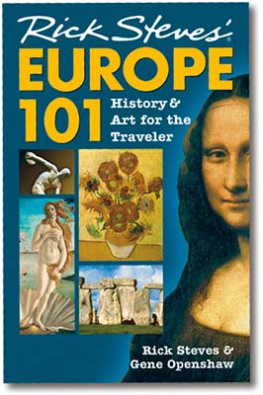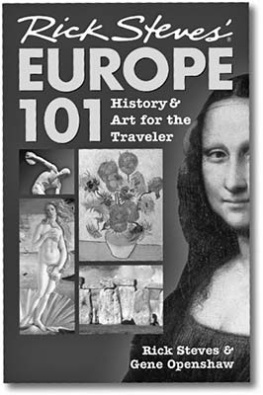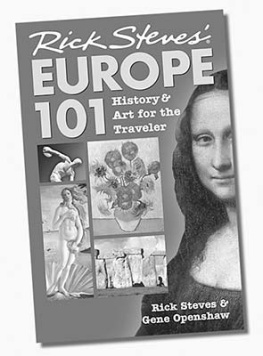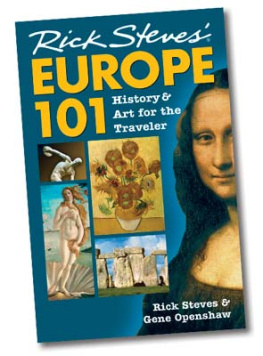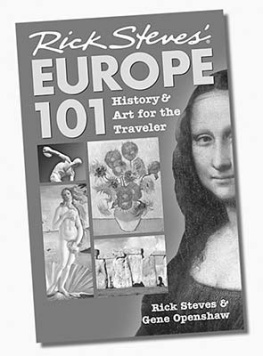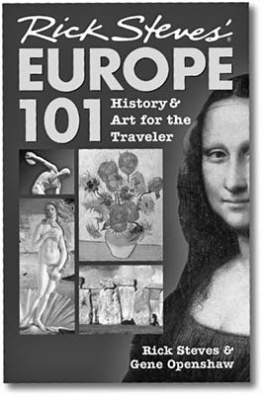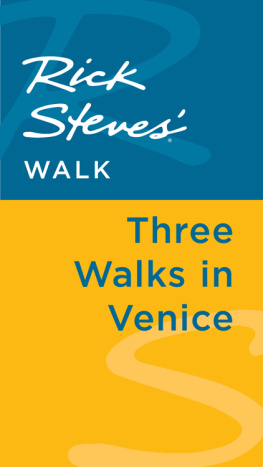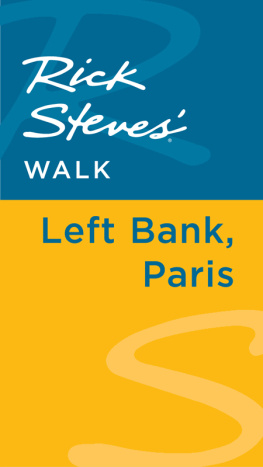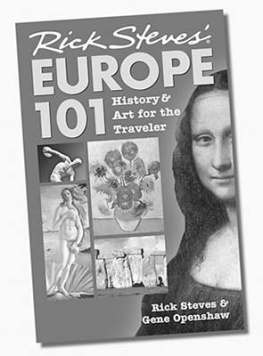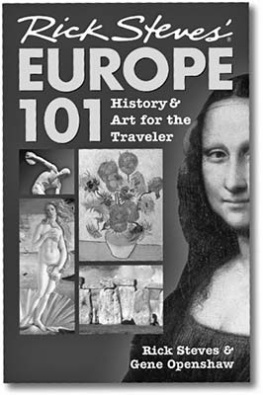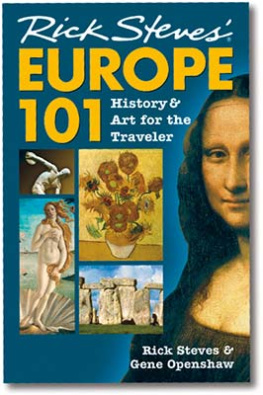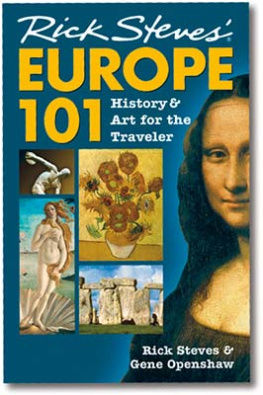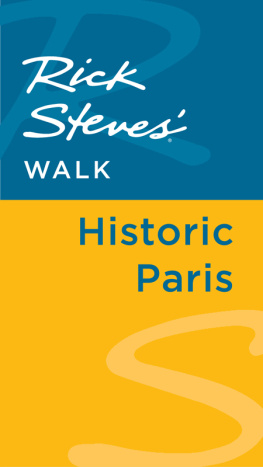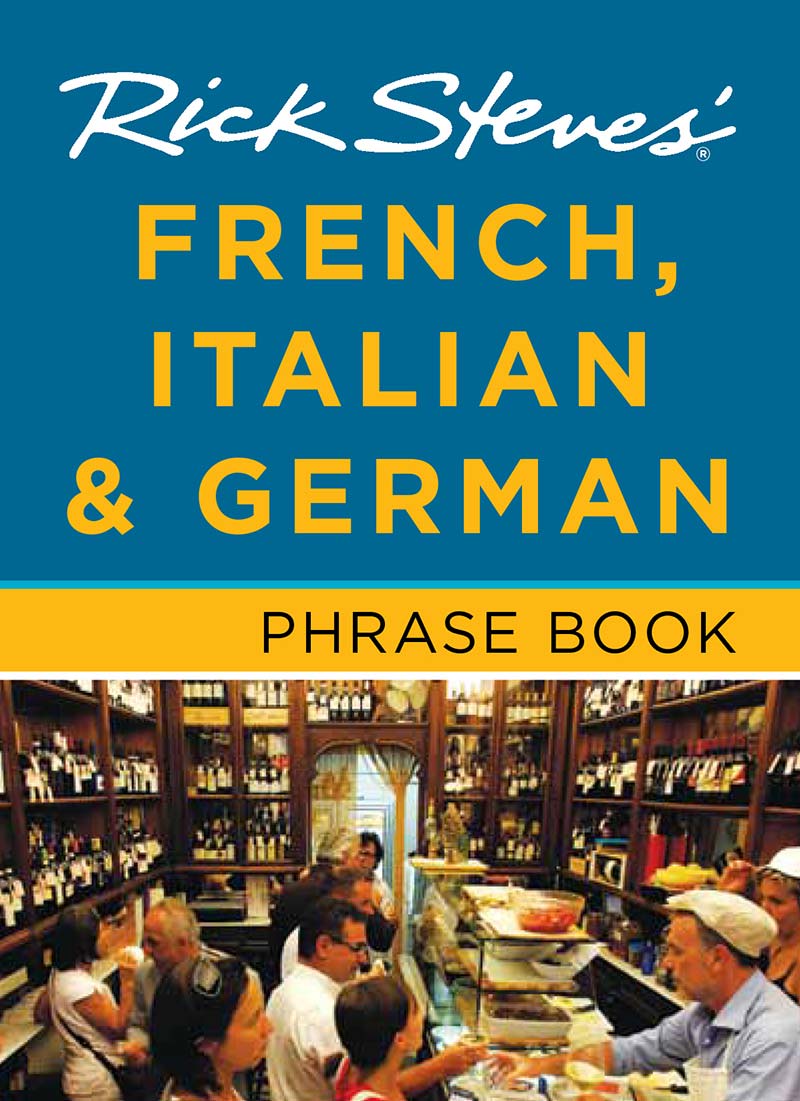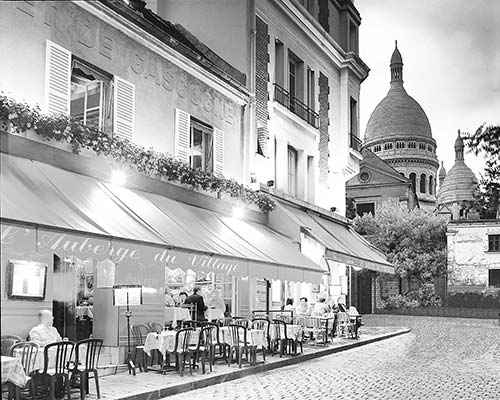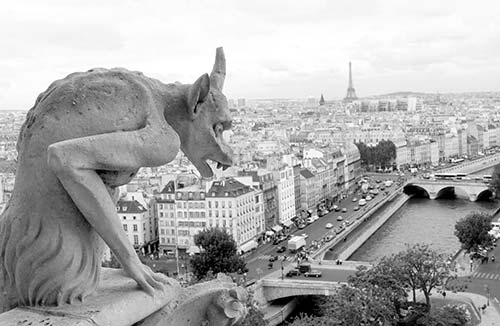Contents
Contents
Rick Steves'
FRENCH, ITALIAN & GERMAN
PHRASE BOOK
Hi, Im Rick Steves.
Im the only monolingual speaker I know whos had the nerve to design a series of European phrase books. But thats one of the things that makes them better.
You see, after more than 30 years of travel through Europe, Ive learned firsthand: (1) whats essential for communication in Europe; and (2) whats not. Ive assembled the most important words and phrases in a logical, no-frills format, and Ive worked with native Europeans and seasoned travelers to give you the simplest, clearest translation possible.
This three-in-one edition is a lean version of my individual French, Italian, and German phrase books. If youre lingering in a country, my individual phrase books are better at helping you connect with the locals, but if youre on a whirlwind trip, this handy three-in-one book gives you all the essential phrases.
To get the most out of this book, take the time to internalize and put into practice my pronunciation tips. But dont worry too much about memorizing grammatical rules, like the gender of a nounforget about sex, and communicate!
While Ive provided plenty of phrases, youll find it just as effective to use only a word or two to convey your meaning and to rely on context, gestures, and smiles to help you out. To make harried postal clerks happy, dont say haltingly in the local language: I would like to buy three stamps to mail these postcards to the United States. All you really need are the words for USA and please. Smile, point to the postcards, hold up three fingers...and youve got stamps.
This book also has six cheat sheets. Tear out the sheets and keep them handy, so you can easily memorize key phrases during otherwise idle moments. A good phrase book should help you enjoy your travel experiencenot just survive itso Ive added a healthy dose of humor. And as you prepare for your trip, you may want to read the latest edition of my Rick Steves Best of Europe guidebook or my individual guides for France, Italy, Germany, Switzerland, and Vienna, Salzburg & Tirol.
.
Bon voyage. Buon viaggio. Gute Reise. Happy travels!
Challenging, romantic French is spoken throughout Europe and thought to be one of the most beautiful languages in the world. Half of Belgium speaks French, and French rivals English as the handiest second language in Spain, Portugal, and Italy. Even your US passport is translated into French. Youre probably already familiar with this poetic language. Consider: bonjour, cest la vie, bon apptit, merci, au revoir, and bon voyage! The most important phrase is sil vous plat (please; pronounced see voo play). Use it liberallythe French will notice and love it.
You can communicate quite a lot with only a few key French words: a, a va, je peux, and voil. Heres how:
a (pronounced sah) is a tourists best friend. Meaning that or this, it conveys worlds of meaning when combined with pointing. At the market, fromagerie, or ptisserie, just point to what you want and say a, sil vous plat, with a smile.
a va (sah vah), meaning roughly it goes, can fit almost any situation. As a question, a va? (Does it go?) can mean Is this OK? When combined with a gesture, you can use a va? to ask, Can I sit here? or Can I touch this? or Can I take a picture? or Will this ticket get me into this museum? and much more. As a statement, a va (which basically means Yes, its OK) is almost as versatile. When the waiter asks if you want anything more, say a va (Im good). If someones hassling you and youve had enough, you can just say a va (Thats enough).
Je peux? (zhuh puh; means Can I?) can be used in many of the a va? situations, and more. Instead of saying Can I please sit here? just gesture toward the seat and say Je peux? Instead of asking Do you accept credit cards? show them your Visa and ask Je peux?
While English speakers use Voil (vwah-lah) only for a grand unveiling at a special occasion, the French say it many times each day. It means Yes or Exactly or Thats it or There you go. Unsure of how much your plums cost, you hold a euro coin out to the vendor and say a va? He responds with a cheery Voil...and youre on your way, plums in hand.
While a number of French people speak fine English, many dont. The language barrier can seem high in France, but locals are happy to give an extra boost to any traveler who makes an effort to communicate. As with any language, the key to communicating is to go for it with a mixture of bravado and humility.
French pronunciation differs from English in some key ways:
sounds like S in sun.
CH sounds like SH in shine.
G usually sounds like G in get.
But G followed by E or I sounds like S in treasure.
GN sounds like NI in onion.
H is always silent.
J sounds like S in treasure.
R sounds like an R being swallowed.
I sounds like EE in seed.
and sound like E in let.
and EZ sound like AY in play.
ER, at the end of a word, sounds like AY in play.
and EAU sounds like O in note.
In a Romance language, sex is unavoidable. A man is content (happy), a woman is contente. In this book, when you see a pair of words like content / contente, use the second word when talking about a woman.
French has four accents. The cedilla makes sound like s (faade). The circumflex makes sound like eh (crpe), but has no effect on , , , or . The grave accent stifles into eh (crme), but doesnt change the stubborn ( la carte). The acute accent opens into ay (caf).
French is tricky because the spelling and pronunciation seem to have little to do with each other. Quest-ce que cest? (What is that?) is pronounced: kehs kuh say.
The final letters of many French words are silent, so Paris sounds like pah-ree. The French tend to stress every syllable evenly: pah-ree. In contrast, Americans say Par-is, emphasizing the first syllable.


